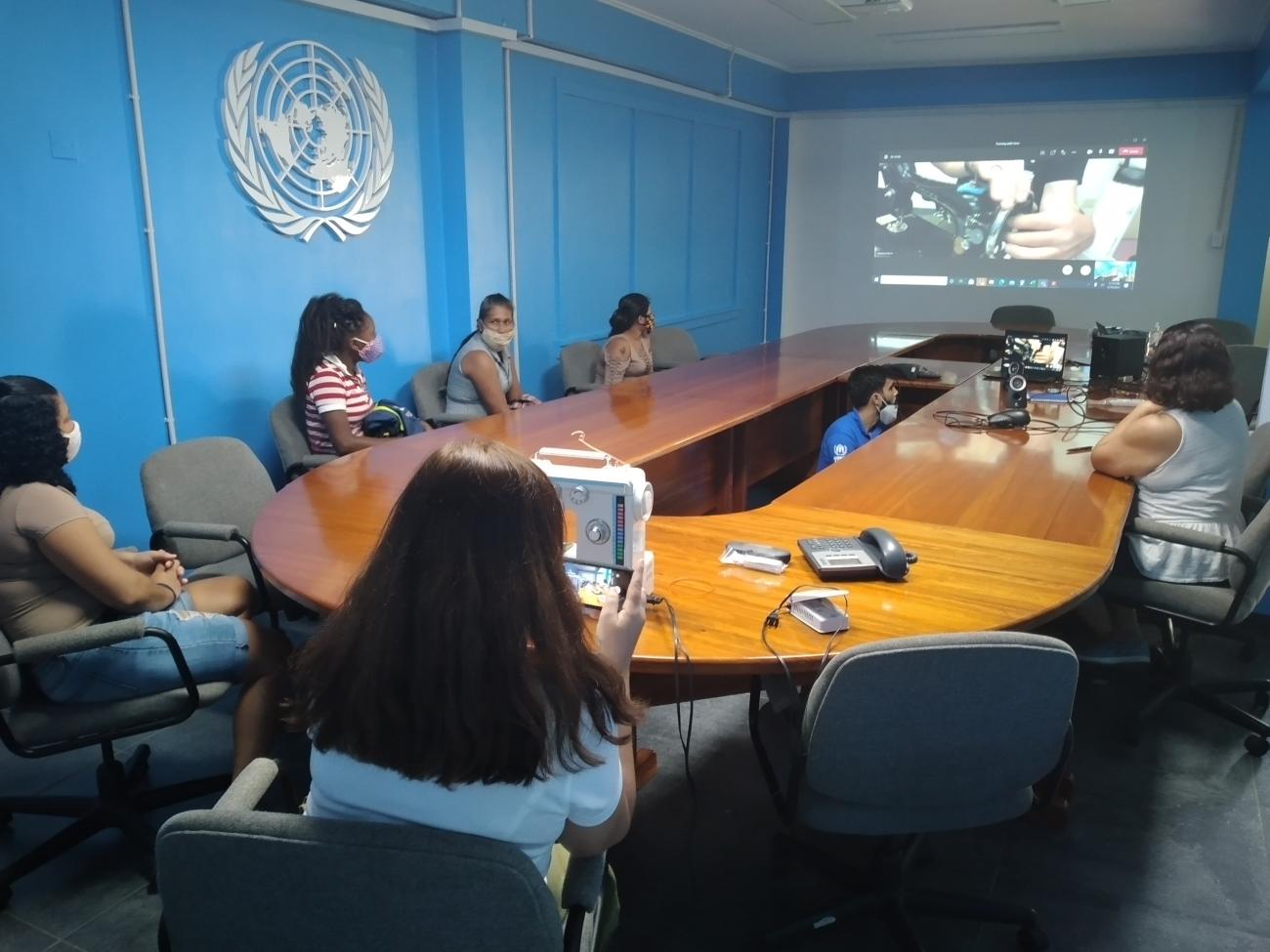Olive went back to the trade many years later, after the situation in her adopted home forced her to return to Guyana.
It had been many years since 70-year-old Olive DaSilva had earned a living as a seamstress. After working at a school uniform factory in Ciudad Bolivar, Venezuela, where she went with her family to build a better life, Olive went on to work as a preschool teacher.
After widespread insecurity and food and medicine shortages forced her to flee her adopted home, returning to her native Guyana in 2018, her sewing skills once again proved a lifeline.
“It’s very helpful for me because I have no foundation here, my life was in Venezuela,” said Olive. “This is helping me financially, to be active, doing something, to be able to have a community here again.”
She is one of 109 people taking part in a program to make cloth face masks. Supported by UNHCR, the UN Refugee Agency, and the Church of Jesus Christ of Latter-day Saints, the program aims to allow refugees, migrants and returnees a chance to rebuild their lives, while at the same time contributing to efforts to staunch the spread of the coronavirus.
More than 5 million people have fled Venezuela in recent years, displaced by the same factors that made it impossible for Olive to continue living in there. Those who have fled include not only Venezuelan nationals but also long-term residents who had moved to Venezuela years or even decades earlier, when the oil giant’s economy was booming.
Olive recalls her decades in Venezuela with fondness and nostalgia, saying, “It was so wonderful. They are very loving, very kind. I got used to that.” But as insecurity and shortages of basic staples worsened, Olive recognized she had no choice but to leave and returned to a community in East Bank Demerara, in Central Guyana, along with her son.
Back in Guyana, she was at a loss of what to do to make ends meet until she heard of the mask-making program.
Olive and six other women were provided special training on how to use the sewing machines via a workshop facilitated by Sew Much Hope, a civil society organization based in the United States. Having become the first master trainers, they can now train others on how to use and maintain the donated machines. So far, 63 people across four regions have been trained.
“This was the first time I ever trained anyone. I mean I am a good person and always try to help people, but I never had the chance to train anyone,” said master trainer Glennis Ross, one of the other women in the program. “It was a good feeling to know that I could help them learn to use the machine which will give us money.”
“Small projects like these can bear big fruits for people like refugees, migrants and returnees,” said UNHCR’s Cecilie Becker-Christensen Saenz Guerrero, who heads the agency’s office in Guyana. “The new machines and the training help increase the quality of the mask production and to establish sustainable solutions which will promote self-resilience and sustainable livelihoods in the future.”
To date, the mask-making program has yielded over 50,000 masks that have been purchased by UNHCR and distributed to refugees, migrants and locals throughout Guyana.
Olive remains hopeful and dreams of expanding her sewing business in the future.
“I like experimenting with sewing. I would like to make cosmetic and pencil cases, bathroom sets. I don’t know how long I will have good health for me to carry on. But I would like to still be independent,” Olive added.




